The College is committed to increasing rural training opportunities; creating a more equitably distributed workforce; increasing our evidence base on rural issues, pivotal to improving regional and rural emergency care; and ensuring education and training opportunities are readily available for all our colleagues providing care to regional, rural and remote communities.
Regional, Rural and Remote (RRR) Committee
Over the last two decades, the ACEM Regional, Rural and Remote (RRR) Committee has been providing the ACEM Board and its councils leadership and advice regarding policies and standards for all aspects of emergency care in regional, rural and remote areas.
Acknowledging the challenges of health access and provision in rural areas, the committee is driving health equity and emergency care access in regional, rural and remote areas as a priority for the College.
The RRR Committee reports to the Council of Advocacy, Practice and Partnerships (CAPP).
The role of the RRR Committee is to:
- provide leadership and advice to CAPP and other ACEM entities regarding policy and standards for all aspects of emergency care in regional, rural and remote areas;
- advise CAPP, the Council of Education and the ACEM Board on issues relating to the recruitment and retention of Fellows of the College to regional and rural areas;
- advise CAPP, the Council of Education (COE) and any other ACEM entities, as applicable, on issues relating to the recruitment, retention and training of College trainees in regional and rural areas;
- provide comment and advice to CAPP on those aspects of healthcare delivery (such as administration, nursing, retrieval medicine and pre-hospital care) that impact on the provision of emergency care in regional, rural and remote areas; and
- liaise with other organisations and colleges on issues of common ground, as deemed necessary and directed by CAPP and/or the ACEM Board.
RRR Committee Members
The Committee’s current members are:
-
Juan Ascencio-Lane – Chair | Ex-officio: Council of Advocacy, Practice and Partnerships (TAS)

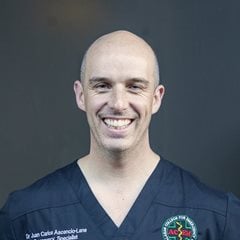
Juan was born in Mexico and five years later moved to the country of his mother’s heritage, Ireland. He went to University College Dublin to undertake his medical degree. After completing his internship, he moved to Aotearoa New Zealand to take advantage of the impressive outdoor activities where he lived for three years before moving to Tasmania.
Juan completed his EM training at the Royal Hobart Hospital, where he also he met his wife.
Juan now works within the Tasmanian Health Service and is also completing his Fellowship in diving and hyperbaric medicine. Juan's career passion is nurturing future doctors and ensuring that EM continues to grow.
Outside of work, Juan spends time with his ever-growing family and enjoys any sport.
-
Lauren Kennedy – Deputy Chair

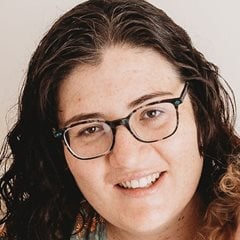 Lauren Kennedy is an Emergency Medicine Specialist at Mount Gambier and District Hospital, in the Limestone Coast Local Health Network, and is a Clinical Educator in Rural Training Pathways at Flinders University.
Lauren Kennedy is an Emergency Medicine Specialist at Mount Gambier and District Hospital, in the Limestone Coast Local Health Network, and is a Clinical Educator in Rural Training Pathways at Flinders University.
Lauren is a new Fellow who has trained primarily in southern Adelaide completing her medical degree at Flinders University, and the majority of her FACEM training at Flinders Medical Centre, with rotations at Mildura Base Hospital, MedSTAR Kids and the Royal Adelaide Hospital. Lauren has a Diploma in Clinical Education and plans to extend this to a Masters by research in the coming years.
Lauren has interests in clinical education at the clinical undergraduate and vocational level, including a particular interest in the use of simulation and gamification techniques, as well as assessment practices. Lauren is also passionate about strengthening the rural workforce and supporting doctors to return to workforce after the addition of children to their household. Lauren's clinical and academic roles give an insider's view of these issues and are avenues for advocacy.
When not at work Lauren is spending time with her family including two young children and exploring the Limestone Coast.
-
Adam Gunner – FACEM trainee member (NSW)

-
Christine Edwards – Community member (TAS)

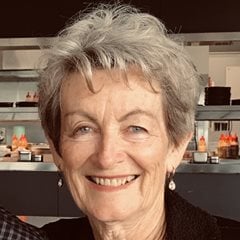
Christine is an experienced CEO, Board Director, and community representative. Christine holds board appointments in health and medical research, and community appointments on committees for the Australian Medical Council, and three committees of ACEM.
Christine has worked in remote locations in the Pilbara in Western Australia where she developed an interest in how isolation impacts on services and communities and has also worked in Victoria and Tasmania.
Christine has post-graduate qualifications in public sector management, health administration, and publishing and editing. Christine is also a graduate of the Australian Institute of Company Directors.
Christine is the Community Member on the Rural, Regional and Remote Committee.
-
Gregory Hollis – FACEM (Co-opted) (NSW)

-
Jane Armstrong – FACEM (NSW)

-
Karly Field – FACEM (NSW)

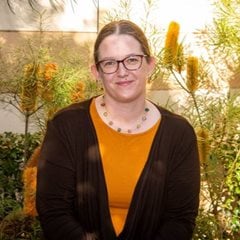 Karly is a Staff Specialist in Emergency Medicine at Coffs Harbour Base Hospital, and the Director of Macksville Emergency Department, on the Mid North Coast of NSW. Karly grew up in Nambucca Heads, a small beachside town fifteen minutes from the ED where she is now Director. Karly left this beautiful part of the world to attend medical school which she completed at the University of Adelaide. Returning to her hometown to practice as a specialist has been the driving force behind her desire to support and promote rural emergency medicine.
Karly is a Staff Specialist in Emergency Medicine at Coffs Harbour Base Hospital, and the Director of Macksville Emergency Department, on the Mid North Coast of NSW. Karly grew up in Nambucca Heads, a small beachside town fifteen minutes from the ED where she is now Director. Karly left this beautiful part of the world to attend medical school which she completed at the University of Adelaide. Returning to her hometown to practice as a specialist has been the driving force behind her desire to support and promote rural emergency medicine.
Karly travelled extensively after completing her internship at the Royal Adelaide Hospital, and after two years as a JMO at the Mater Misericordiae University Hospital in Dublin, the Republic of Ireland, Karly returned to Australia to commence an Emergency Medicine career at the Townsville University Hospital in Far North Queensland. Karly completed training mainly at rural and regional hospitals, with the majority of time spent at Coffs Harbour Base Hospital. Karly completed rotations at the Tweed Hospital in Northern NSW, and a Special Skills term at Macksville District Hospital. During this time Karly was a Trainee member on the Rural, Regional and Remote Committee.
After attaining Fellowship in 2017, Karly commenced work as one of the first FACEMs at Macksville District Hospital and became the Director of the Department in 2019, just in time for some of the biggest challenges the department ever faced. Karly has been the Medical Lead for the Coffs Clinical Network EMET program since 2019, and is currently a member of the ACEM EMCDAD Working Group. Karly works with the Mid North Coast LHD Australian Medical Council WBA program and is an Associate Professor and Head of Campus for Charles Sturt University Rural Clinical School at their Northern Rivers Campus.
Karly’s interests lie in developing a strong, sustainable rural, regional and remote workforce and believes in equitable health care across all geographical areas and across the entire socio-economic spectrum. Karly hopes to achieve this by encouraging rural students to pursue a career in health, supporting medical education and training in rural and regional health services, and through mentorship of students, trainees, and geographically isolated medical officers.
-
Kirsty Jackson – FACEM (VIC)

-
Lucy-Anne Tolcher – FACEM (QLD)

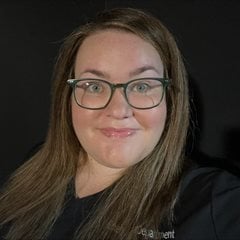
Lucy-Anne is an Emergency Physician based in Toowoomba, Queensland. Lucy-Anne grew up in Mackay, Queensland and completed her studies at James Cook University. It was here her passion for rural and regional medicine was fostered going on to complete most of her training in rural and regional centres.
Lucy-Anne is a passionate advocate for health equity, social justice and wellbeing, and has completed additional studies to foster growth and improvement in regional centres.
Lucy-Anne joined the Regional, Rural, and Remote Committee to continue to advocate for equality.
-
Omar Faruque – FACRRM (NSW)

-
Nicole Liesis – FACEM | National Rural Health Alliance Representative (WA)

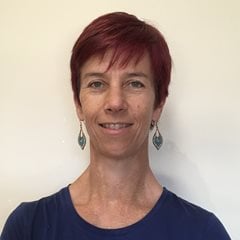
Nicole has worked across Qld, WA and overseas in remote, rural, regional, urban district, metropolitan tertiary and virtual settings. Living in Boorloo (Perth) her current work focus is regional WA.
Nicole is passionate about reducing inequity of both access and quality for all that seek emergency care. Nicole believes that Aboriginal and Torres Strait Islander concepts of social and emotional wellbeing grounded in connection to country, community and culture are fundamental to health. Focusing upon cross-cultural communication, strengths-based coaching, antiracism, and facilitative leadership Nicole’s vision is to embrace the strengths of many cultural perspectives to improve healthcare delivery.
Nicole’s ACEM involvement includes Mentoring Reference Group (Chair), Indigenous Health Committee, RAP Steering Group, and WA Faculty Deputy Chair.
-
Rachael Luckie – FACEM | Hauora Taiwhenua Rural Health Network Representative (NZ)

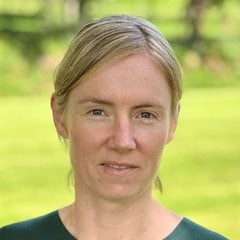 Rachael grew up in the Hauraki District before pursuing medicine at the University of Auckland. Rachael received an Institute of Rural Health Undergraduate Scholarship in her trainee intern year.
Rachael grew up in the Hauraki District before pursuing medicine at the University of Auckland. Rachael received an Institute of Rural Health Undergraduate Scholarship in her trainee intern year.
Emergency Medicine seemed like the obvious choice for Rachael who enjoys variety and being on a first-name basis with her nursing, allied health and administrative team members.
Rachael trained in Emergency Medicine primarily at Waikato Hospital but has also worked at a number of regional and metropolitan sites across New Zealand.
Since 2018 Rachael has been working as an Emergency Physician at Thames Hospital and has a small FTE at Waikato Hospital.
Rachael is passionate about improving health equity for rural communities in Aotearoa New Zealand.
Rachael joined the Rural, Regional and Remote Committee in 2022.
-
Renee Pearman – FACEM (NSW)

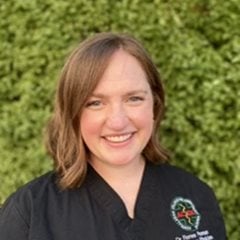 Renee is an Emergency Physician living and working on Wiradjuri country in NSW. Since completing medical school at the University of Sydney, she has trained in Emergency Medicine around regional NSW, Sydney, and the Northern Territory. Having developed a passion for regional Emergency Medicine, Renee now works clinically at Orange and Dubbo Health Services and holds a teaching position with the University of Sydney’s School of Rural Health. Renee has held positions on Trainee Progression Review panels as both a Trainee and a Fellow, and is a member of ACEM’s Rural, Regional and Remote Committee.
Renee is an Emergency Physician living and working on Wiradjuri country in NSW. Since completing medical school at the University of Sydney, she has trained in Emergency Medicine around regional NSW, Sydney, and the Northern Territory. Having developed a passion for regional Emergency Medicine, Renee now works clinically at Orange and Dubbo Health Services and holds a teaching position with the University of Sydney’s School of Rural Health. Renee has held positions on Trainee Progression Review panels as both a Trainee and a Fellow, and is a member of ACEM’s Rural, Regional and Remote Committee.
Renee is passionate about providing excellent, compassionate, equitable clinical care to patients in rural areas, as well as advocating for regional clinicians to access high quality training and sustainable work environments.
-
Robert Nayer – FACEM (QLD)

-
Robert Worswick – FRACGP (ACT)

 Bob is a Rural Generalist and a former Army doctor. He is a Fellow of the Australian College of Rural and Remote Medicine, a Fellow of the Royal Australian College of General Practitioners and holds a Fellowship in Advanced Rural General Practice.
Bob is a Rural Generalist and a former Army doctor. He is a Fellow of the Australian College of Rural and Remote Medicine, a Fellow of the Royal Australian College of General Practitioners and holds a Fellowship in Advanced Rural General Practice.
During his Rural Generalist training Bob worked as a GP Registrar in Barcaldine, Ingham and Townsville; and as a Registrar in the Canberra Hospital ED, during which time he completed the Advanced Diploma in Emergency Medicine. He now works as a medical officer providing clinical care and clinical leadership in Australian Defence Force health facilities. He also provides locum support in the ED of a rural Queensland hospital and, time permitting, works as a CMO in the Canberra Hospital ED.
Bob is a Director on the Board of the Australian College of Rural and Remote Medicine (ACRRM) and has served on several of the College’s Committees. He has a genuine desire to improve Rural Generalist training and education.
-
Rodney Whyte – Certificant member (VIC)

-
Tim Baker – Ex-officio: National Programs Steering Committee (VIC)

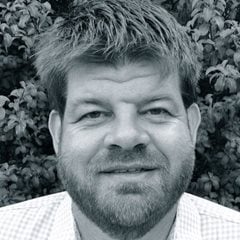 Tim lives and works as an emergency physician on the South West coast of Victoria. Tim is the Director of Deakin University’s Centre for Rural Emergency Medicine.
Tim lives and works as an emergency physician on the South West coast of Victoria. Tim is the Director of Deakin University’s Centre for Rural Emergency Medicine.
Tim has found ACEM committees to be an effective way to support and advocate for rural emergency care and joined the Rural Regional and Remote Committee in 2022 and was previously a member from 2012 to 2020.
Tim is the current chair of the National Program Steering Committee, and previously the chair of the Emergency Medicine Certificate and Diploma Committee.
Rural Health Action Plan
ACEM is pleased to launch the second iteration of our Rural Health Action Plan (RuHAP). This RuHAP marks another significant step in our ongoing commitment to regional, rural and remote emergency medicine, as well as our commitment to rural health equity.
Implementing this second Rural Health Action Plan signals ACEM’s readiness to elevate regional, rural and remote emergency medicine, develop and strengthen relationships, engage members, trainees and other stakeholders in regional, rural and remote emergency medicine, and pilot innovative strategies focused on building and upskilling the emergency medicine workforce. Getting these steps right will ensure the sustainability of future Rural Health Action Plan’s and initiatives to improve regional, rural and remote emergency medicine and rural health equity.
We encourage you to read this document and consider how ACEM can work with you to support rural emergency care services.
Access the RuHAP![]()
Quality Standards and Toolkit
The Quality Standards for Emergency Departments and Hospital-Based Emergency Care Services provide guidance and set expectations for the provision of equitable, safe, and high-quality emergency care in EDs and other hospital-based emergency care services.
The Quality Standards were written to address the whole ED process, encompassing the patient experience from presentation to discharge, transfer or admission. With this in mind, all aspects of care and administration within the ED were considered in order to provide a comprehensive account of how an ED or hospital-based emergency care facility should operate.
There are specific quality improvement resources within the Quality Standards Toolkit.
Access the Quality Standards![]()
Access the Quality Standards Toolkit![]()
National Program
The National Program aims to address some of the big challenges facing emergency medical care across Australia, including improving the quality and distribution of the future emergency medicine workforce. It includes a range of projects, facilitated by ACEM and funded by the Commonwealth Department of Health's Specialist Training Program.
Read more about the National Program![]()
Better Mental Health in Rural EDs
The Mental Health in Rural Emergency Department (MHrED) project is a purpose-built website that will provides health professionals in rural areas with guidelines, articles, tools and resources to assist staff providing emergency care in RRR areas with increasing their competence and confidence with assessing and managing patients who present with mental health issues. This site aligns with the broader Quality Standards and link to a number of relevant mental health guidelines and initiatives within the College.
Access the project website![]()
Digital Learning Resource
This mini digital learning resources in this course are designed to progress the knowledge and skills of trainees, ACEM members and other health professionals for the practice of RRR emergency medicine in Australia and Aotearoa New Zealand.
Access the learning resources![]()